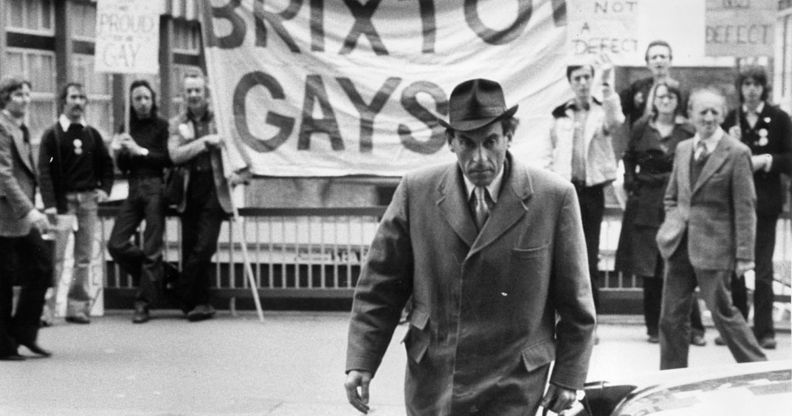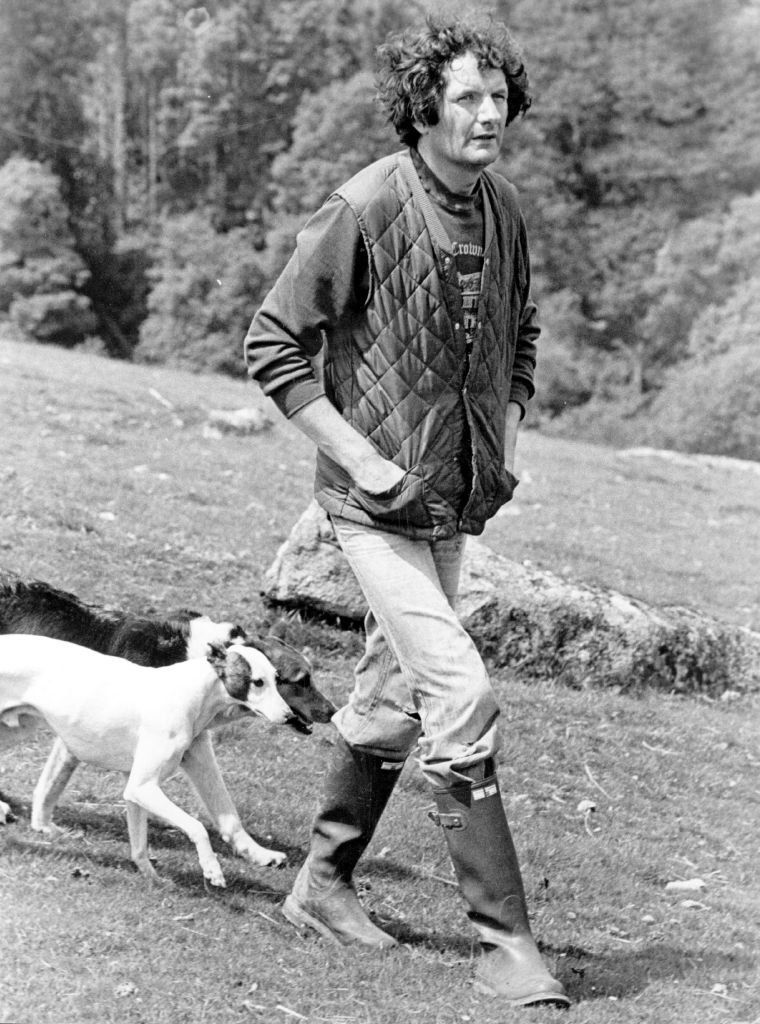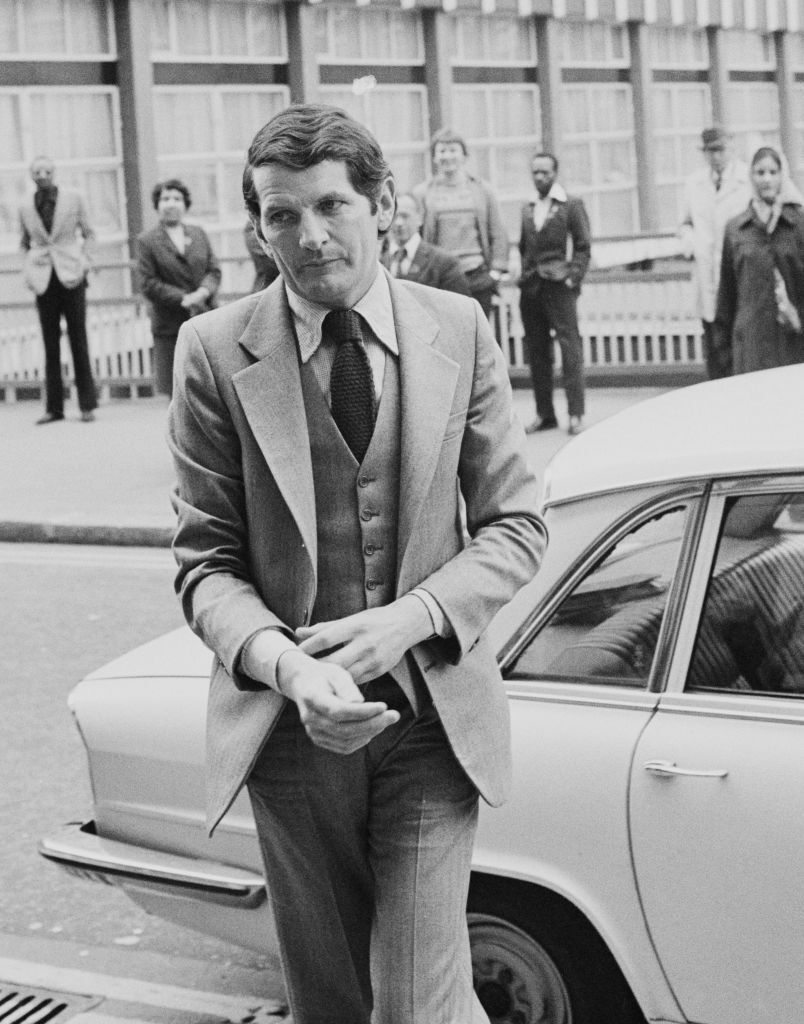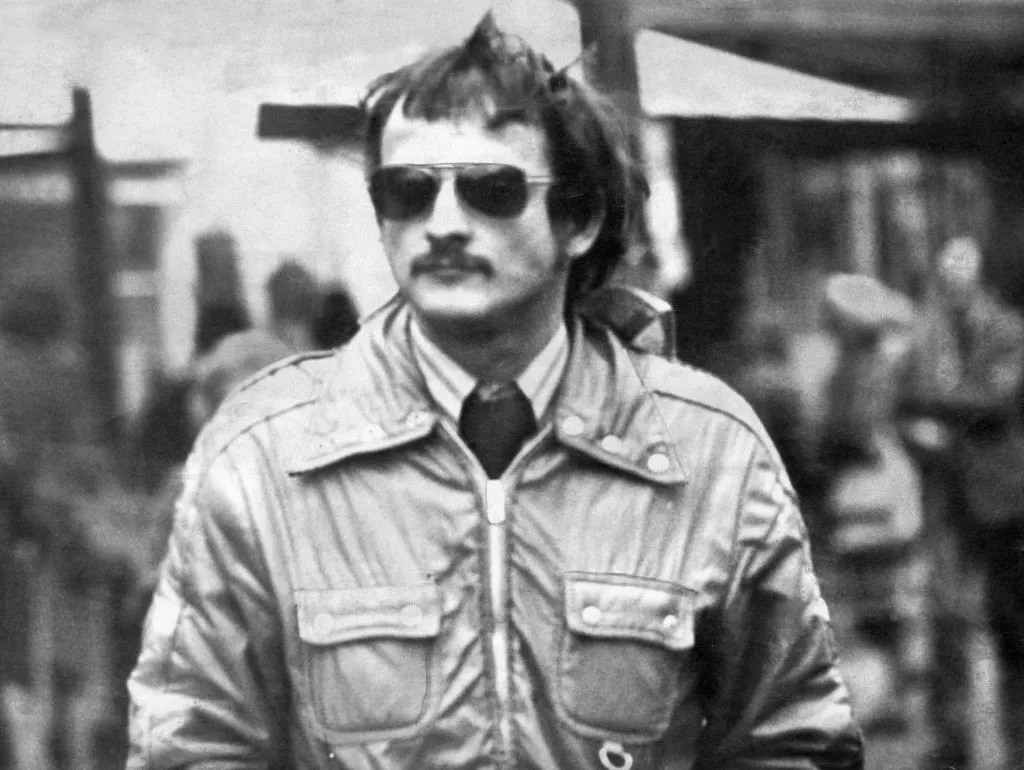Norman Scott: Man who accused MP lover of trying to murder him speaks his truth, four decades on

Jeremy Thorpe pictured outside the Old Bailey with the Brixton Gays demonstrating in the background. (Getty)
In June 1979, former MP Jeremy Thorpe was acquitted of conspiring to murder the man who claimed to be his ex-lover, Norman Scott.
It was one of the most sensational and most publicised trials of the 20th century, filling the tabloids with lurid and salacious details.
Decades on, the Thorpe affair, as it became known, remains one of the UK’s most notorious political scandals – it was turned into a BBC drama, A Very English Scandal, in 2018, and more recently was retold by Alice Levine and Matt Forde on the Wondery podcast British Scandal.
But behind the headlines is a man who says he was sexually abused by one of the leading political figures of the day, and who has had to live with the scars of his experience for decades.
Jeremy Thorpe, who died in 2014, always denied that he had ever had any kind of sexual relationship with Norman Scott.
Speaking to PinkNews more than 40 years after the trial, Scott recalls how he first came to meet Thorpe in the early 1960s. The MP, who went on to become leader of the Liberal party, visited the Oxfordshire stables where Scott was working as a groom.
“It was staggering, he arrived in this whirlwind,” said Scott, who was then in his 20s. “He had this tremendous charisma and I remember being impressed by that.”

It was during that visit, Scott says, that Thorpe said to contact him if he ever had any problems, but neither man could have known that a storm was on the horizon.
After leaving his job following a dispute, Scott suffered a breakdown and spent much of the months that followed in a psychiatric unit. When he got out, he went to parliament to ask for Thorpe’s help.
“I arrived in the House of Commons as this nervous wreck really, full of pills, with lots of pills to take, and he said to me: ‘You must come down and stay at my mother’s house for the night.’”
Scott claims he was raped for the first time that evening.
“He came into the room and sat on the bed and talked to me and said all was going to be OK and not to worry, and I just burst into tears and he put his arms around me. Nobody had touched me for years and I just broke down, and the next thing I knew he was actually in bed, and he raped me.
“I was utterly shocked… when he raped me I felt that I was being, as I said at the Old Bailey years later, as if I had been torn in half. It was so painful, so dreadful.”
According to Scott, now 83, Thorpe returned later that night and raped him again.
“Most people would run away, but how could I?”

Scott felt he couldn’t leave because he didn’t have his National Insurance (NI) card, which hadn’t been returned by his former employer. In those days, not having the card meant he couldn’t get another job or claim benefits.
The result, he says, was that he ended up living for a time under Thorpe’s thumb. He rented a room in London where Thorpe would allegedly visit for sexual encounters.
“I just couldn’t bear it. All I wanted was to get away, have my horses again and just have a cleaner life. I hated the whole sexual part of it because there was no love in it at all, no caring.”
Jeremy Thorpe wanted to ‘get rid’ of Norman Scott
Norman Scott says their relationship continued on and off in the following years. He repeatedly returned to the North Devon MP due to persistent issues with obtaining his NI card.
In 1967, Jeremy Thorpe became leader of the Liberal Party, and it appears he was becoming increasingly worried about Scott’s behaviour. Two years earlier, while living in Ireland, Scott had written to Thorpe’s mother to say that he and her son had been engaged in a homosexual relationship. This led to Liberal MP Peter Bessell flying to Dublin to warn Scott against blackmail.
By the time Thorpe became leader, Scott was back in England, with his NI card once again causing problems. The story goes that Bessell arranged for him to be paid a weekly stipend to make up for the benefits he was missing out on.

Bessell later claimed that Thorpe first alluded to having Scott killed in December 1968.
“We’ve got to get rid of him,” Thorpe is alleged to have said. “It is no worse than shooting a sick dog.”
The idea was apparently dropped soon afterwards, but Thorpe’s trouble with Scott continued, with the threat of exposure an ever-present reality. It’s alleged that the politician rekindled his plan in 1974, which led to the pilot Andrew Newton being brought on board to carry out the killing.
In October 1975, Newton approached Scott and shot his dog before turning the gun on the man himself, but the trigger jammed.
Newton was sentenced to two years in prison after being found guilty of possessing a firearm with intent to endanger life. After his release in 1977, he sold his story to the London Evening News, claiming he had been paid £5,000 to kill Scott. That prompted a police inquiry that resulted in Thorpe – who had resigned as party leader the year before – and his accomplices being charged with conspiracy to murder.
That led to what some called the trial of the century at the Old Bailey. In the end, all four defendants were acquitted after the judge criticised the lack of firm evidence, praised the defendants and mocked prosecution witnesses. His summing up became the subject of a scathing parody by comedian Peter Cook.
The trial was a media circus, and the entrenched homophobia of the time made the whole thing even more difficult, Scott says.

“I will always remember the press gallery thinking it was terribly funny and roaring with laughter and that is the attitude that continued toward me for years,” Scott recalls.
“It was a different attitude towards gay people in those days, totally different. They were allowed to laugh at us, they were allowed to vilify us. It was disgraceful.”
He adds: “What I also do need to say is, I was telling the truth. That’s how I managed to be at the Old Bailey. I held the Bible and I knew I had to tell the truth – and I did.”
In 2018, the Thorpe affair became the subject of a BBC mini-series. A Very English Scandal aired to rave reviews, with Hugh Grant playing Thorpe and Ben Whishaw playing Scott.
It should have been a moment of redemption for Scott, but he has made no secret of his feelings about the show.
“Stephen Frears [the show’s director] had every chance to see me in my own environment and to see the person I am and yet he directed Ben [Whishaw], who is the most lovely person, he was such a lovely friend to me during it, to be… a, well you saw: very limp-wristed gay person, a stereotypical young gay person.
“I’m just not Iike that, it isn’t my make-up at all.”
Years after his experience with Thorpe, Scott is still speaking out because he fears there are young people in similar situations today. His advice to those being abused is simple: don’t be afraid to tell your story.
“I know it’s difficult, but you must keep your truth. You really must keep your truth.”
Wondery podcast British Scandal: Jeremy Thorpe is available on all podcast services.
How did this story make you feel?

